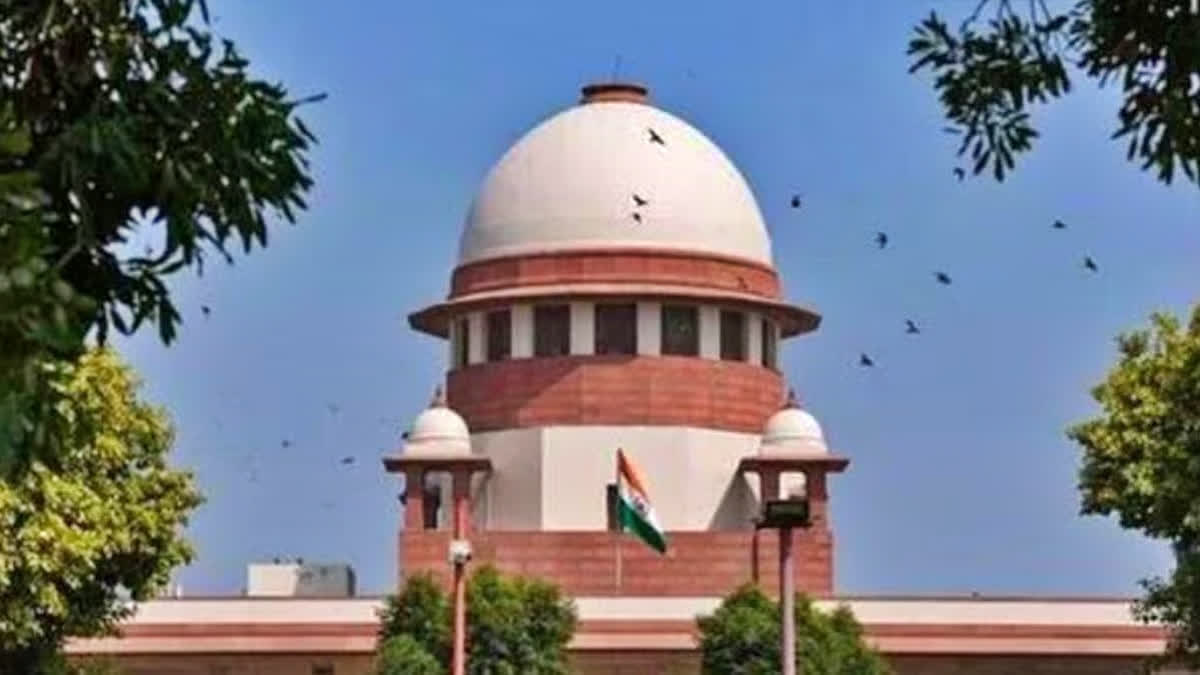New Delhi: The Supreme Court on Monday affirmed the practice of designating lawyers as senior advocates in the apex court and High Courts, saying that the practice cannot be held to be untenable. A bench of Justice Sanjay Kishan Kaul while dismissing the petition filed by advocate Mathews J Nedumpara, along with seven other advocates, called the petition a “misadventure” and a part of an ongoing “vilification campaign” by the petitioners.
The petitioners had argued that senior designation has created a class of advocates with special rights and that the designation more often than not benefits only the kith and kin of judges, senior advocates, politicians and ministers. The bench, also comprising justices CT Ravi Kumar and Sudhanshu Dhulia, held that the practice of designating seniors in the constitutional courts is based on intelligible differentia and a standardised matrix of merit.
Affirming the relevant provisions of the 1961 Advocates Act, the bench said that the process of designating senior advocates is not based on artificial or arbitrary distinction. The apex court said the process is aligned with the age-old tradition of lawyers assisting the court in the process of evolution of law and jurisprudence.
The petitioners challenged the validity of Sections 16 and 23 (5) of the Advocates Act, contending that these “creates two classes of lawyers, senior advocates and other advocates." The bench said, “In fact, during arguments, petitioner No.1 (Nedumpara) sought to submit that the petition filed for judicial transparency and reforms by an NGO sought to hijack the proceedings initiated by the petitioner. This is about the petition of Mrs Indira Jai Singh and even attributing motives to her as it was said that what she sought was legislation”.
Also read: Supreme Court to pronounce verdict on Tuesday on pleas seeking legal sanction for same-sex marriage
The bench said one may say that petitioner No 1 goes on and on ranting and raving about these issues, completely ignoring the purpose of the provisions he seeks to assail and the narrow compass of a challenge to the legislation. “There is no doubt that petitioner No.1 has had more than one brush with the law, though he claims to have become an advocate in the pursuit of his case. Petitioner No.1 crossed boundaries where the court was compelled to take action under the Contempt of Courts Act, 1971, and debar petitioner No.1 from practising in this court," said the bench.
The apex court said the classification of advocates as senior advocates and other advocates under Section 16 of the said Act is a classification made by the legislature. The legislature has a broad discretion to make such classifications, and while there must be a reason for classification, the reason need not be a good one, it said.
“The classification of advocates under Section 16 of the said Act is a tangible difference established by the practice advocates have over decades, and the court has devised a discernible and transparent mechanism to adjudicate the seniority of advocates in the profession. To be able to file any matter in the Supreme Court, an extensive and strict examination for an advocates-on-record has been provided. Not any advocate can walk in to file a matter," said the bench.
Nedumpara questioned the validity of such provisions made under Sections 16 and 23(5) of the Advocates Act, 1961, as well as under Rule 2 of Order IV of the Supreme Court Rules, 2013, as unconstitutional for being violative of the mandate of equality under Article 14 and Right to Practice any Profession under Article 19 as well as Right to Life under Article 21 of the Constitution of India.
"We find the pleadings completely devoid of merit and justification, levelling allegations against all and sundry. This is more so in the conspectus of the large growth in the legal profession where a large number of first-generation lawyers have made their mark. These lawyers, some of them young ones, have come from National Law Schools and other prominent Law Schools," the bench said.



